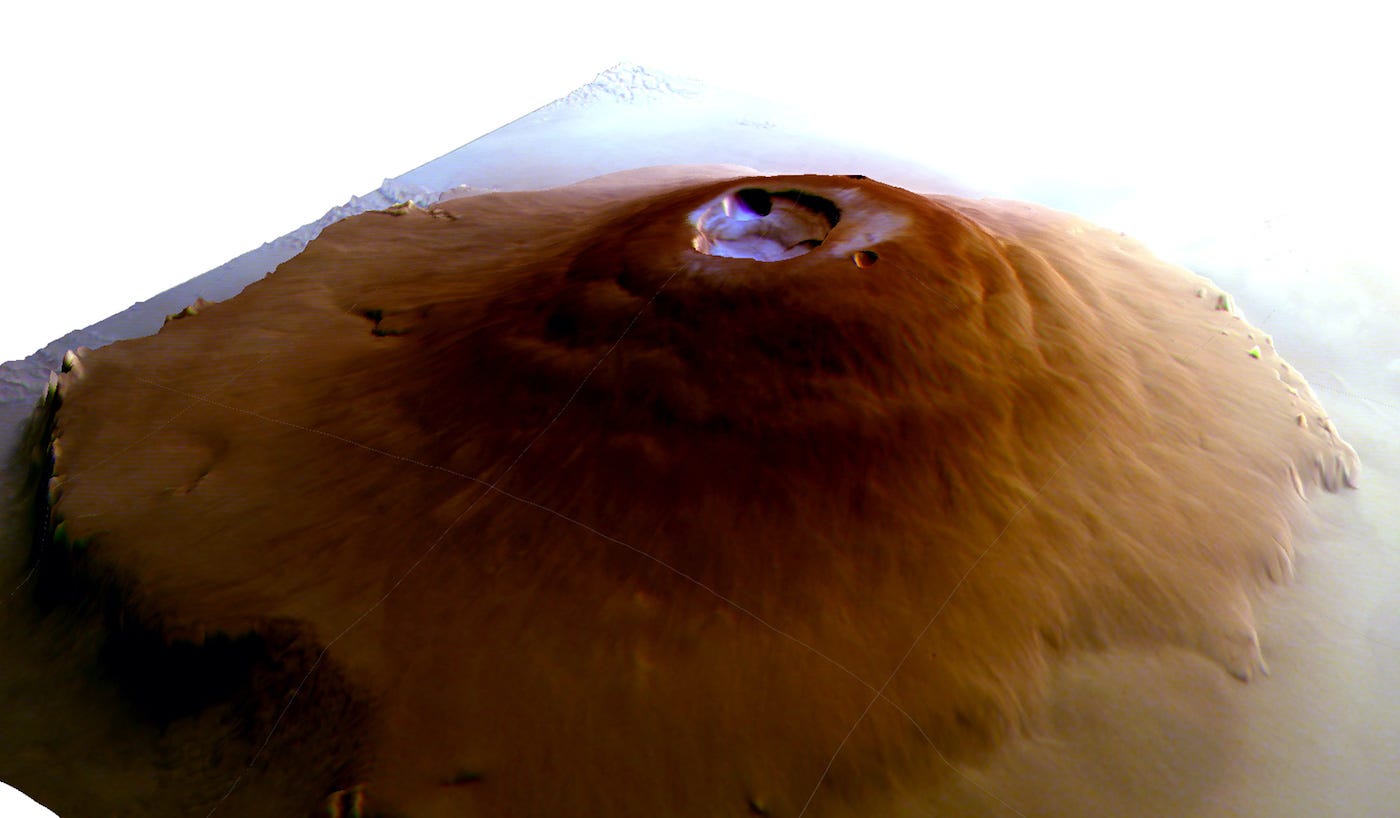Water Frost Found Atop Mars Volcanoes
Unexpected H2O forces fresh thoughts about the red planet's past climate
The midsection of Mars was not thought to be conducive to retaining frozen water, given the planet’s thin atmosphere and the relatively high daytime temperatures. But scientists just announced they found thin layers of water frost in the calderas of multiple volcanoes there.

“We thought it was improbable for frost to form around Mars’ equator, as the mix of sunshine and thin atmosphere keeps temperatures during the day relatively high at both the surface and mountaintop — unlike what we see on Earth, where you might expect to see frosty peaks,” said Adomas Valantinas, a postdoctoral fellow at Brown University. “What we're seeing may be a remnant of an ancient climate cycle on modern Mars, where you had precipitation and maybe even snowfall on these volcanoes in the past.”
The frost is as thin as a human hair, but given how widely spread it is, Valantinas and colleagues figure there’s around 150,000 tons of water freezing onto the surface and sublimating back into the atmosphere daily during the cold season—enough to fill 60 Olympic-sized swimming pools.
The existence of water on the red planet, and other researching indicated there used to be a lot more of it, is a chief reason NASA and other agencies are eager to continue searching for life on Mars, or signs of past life.
The discovery is detailed this week in the journal Nature Geoscience.

